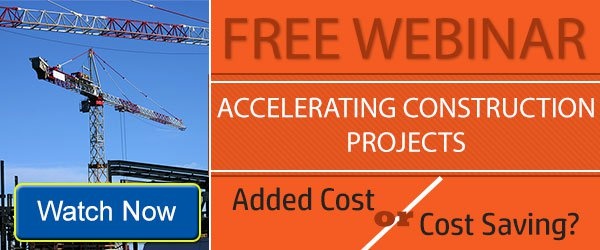341,000 vehicles a day traveled that section of the santa monica freeway, making it amongst the busiest stretches of freeway in the unites states of 1994. when the northridge earthquake struck in january, 2 bridges fell from the i-10 causing death and devastation and leaving the calfornia department of transportation (caltrans) in a major pickle. the closure of the highway was estimated to have cost the economy of los angeles and surrounding area $1 million a day.
caltrans’ engineers figured the 2 bridges would take 140 days to rebuild and bidding started on january 31st, just 14 days after the earthquake struck. a company called c.c. myers inc. won the fixed-bid contract just 4 days later and got right to work.
they finished a mere 66 days later. they delivered the project 74 days ahead of the june 24th deadline.
pretty amazing if you ask me!
how did they accomplish this feat of construction project acceleration?
well, it’s not at all by chance that c.c. myers was able to finish the project much earlier than anticipated. they had planned on finishing early from the start. they had done it before.
in fact, the company used this high-profile project as a key to building a strong reputation for delivering early. a reputation they put to the test many times over the years.
let’s consider the factors at play to answer the “how”, as well as the “why”.
1) incentives
caltrans needed the santa monice freeway fixed and fast. with fema rebuilding the disaster zones all over california and the huge economic hit the area was taking without one of it’s most important thoroughfares, they were ready to offer incentives to the winning bidder of the contract. $200,000 per day was the bonus for early completion and $205,000 per day was the penalty for delivering late.
in the end, the state paid almost double for the completed work which included $14.5 million in bonuses. the contract value was only $14.9 million. but the acceleration in construction resulted in a far quicker return to work for the area’s economy. the cost in bonuses far outweighed the losses to the economy had the opening waited until the june 24th project deadline. in the end, the result was widely considered win-win.
2) great planning
c.c. myers and team used construction project acceleration techniques and great planning to get their results. crews worked 24 hours a day, 7 days a week from the start of the project. mobilization was near-immediate once the contract was awarded even though plans and drawings were still being fleshed-out. scenarios were considered and re-considered until the best possible plan of approach was reached – but in a timely manner.
partnering with state government, they set up an approach to cut through the red tape that would slow them down, having the foresight to manage this risk ahead of time.
3) science and creativity
there is science behind construction project acceleration, but there’s also creativity. myers had trouble getting materials when he needed them, so he rented a train to deliver building materials from the midwest to california; the day the train arrived was the day the materials were needed. when he saw a shortage of workers, he hired from the rivals of his subcontractors in an effort to keep everyone “motivated”.
accelerating construction projects – what are the costs?
the story behind the rebuild of the santa monica freeway is an inspiring one. but it is not beyond anyone’s reach, without the proper know-how.
that’s why we’ve invited international project controls expert, speaker, author and educator saleh mubarak to debunk some the construction world’s long-held myths about construction project acceleration. join us on for this free webinar.


